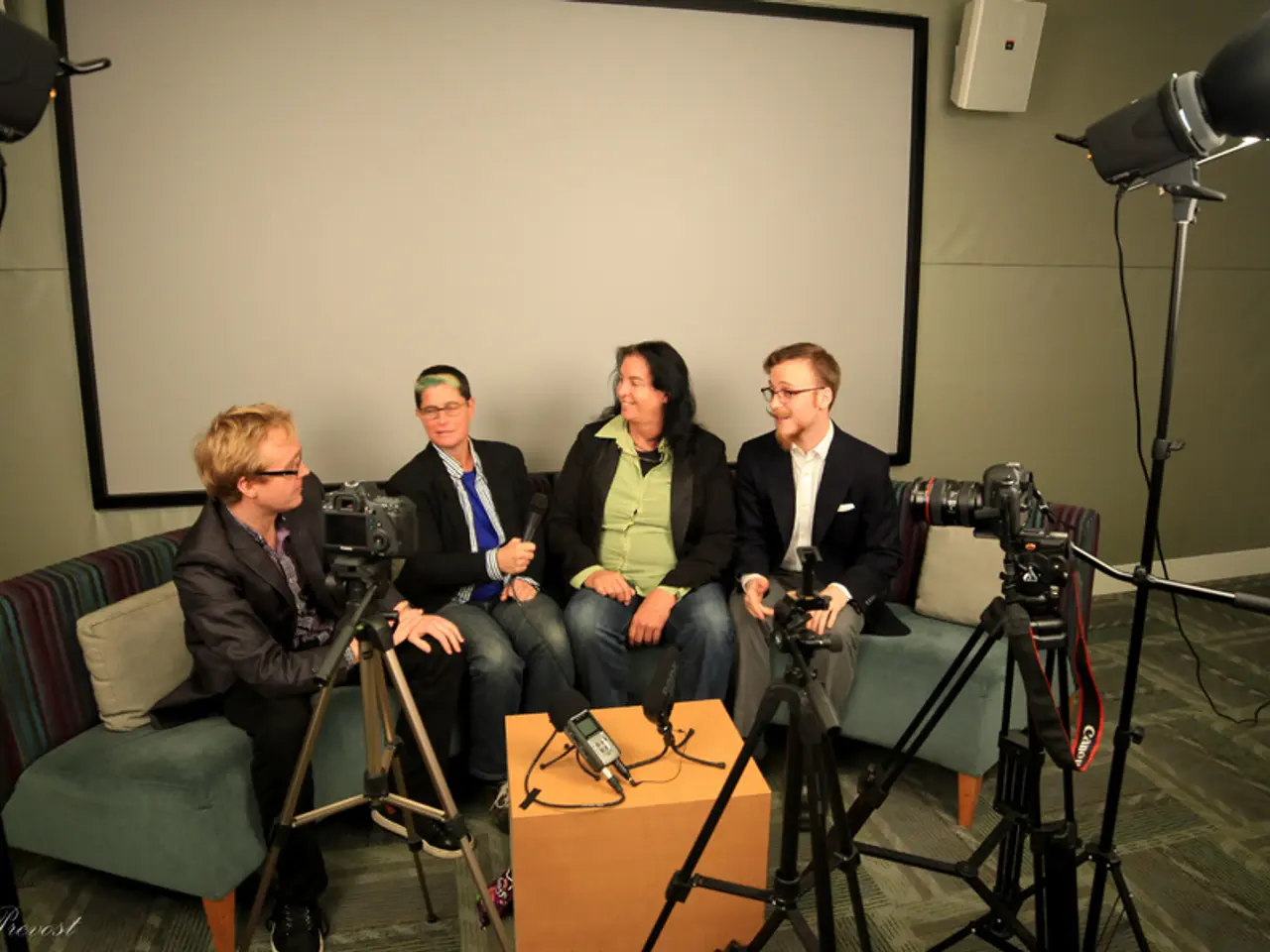Transforming into a Agile Commander: How Scenario Strategies Could Alter Your Approach
In a three-day immersive negotiation simulation, veteran director Amy from a national food processing company faced a challenging scenario. Amy and her team were tasked with negotiating a deal, unaware that the simulation was designed to test strategy, composure, adaptability, and leadership under pressure.
Despite building trust with the opposing team, Amy's team made a classic mistake by opening with a lowball economic offer after multiple rounds of trust-building. This move undermined the credibility they had earned, causing the deal to be off the table, resulting in a local plant closing and 920 jobs being lost.
The simulation, though fictional, was designed to mirror real-world conditions, including decision traps, dilemmas, and emotional investment. It was not about scripts, but about systems thinking, emotional agility, and behavioural insight.
Effective high-stakes negotiation strategies include preparing thoroughly, managing time pressure and pacing, regulating emotions and building rapport, trading concessions strategically, using team roles and scenario planning, and rehearsing fallback options. Amy, in her debriefing, revealed that she had not anticipated the opposing team's unscripted anger and sense of betrayal.
To avoid common mistakes like rushing, overconceding, and poor information/role management, it's crucial to set a BATNA (Best Alternative to a Negotiated Agreement) and quantify alternatives, choose negotiators and roles in advance, and rehearse scenarios and responses.
In Amy's case, not knowing her BATNA or targets led to failing to set realistic targets, resulting in either conceding too much or becoming intransigent. Giving concessions without reciprocity and letting emotions drive choices also contributed to the team's downfall.
Thomas Posey, founder of Posey Associates, a company that helps leaders build high-performance partnerships through strategic negotiation and scenario work, emphasised the importance of these strategies. He stated, "That's where the learning happens for agile leaders who don't just avoid mistakes, but learn how to lead through them."
In conclusion, high-stakes negotiations require careful planning, emotional intelligence, and adaptability. By learning from Amy's experience, negotiators can avoid similar pitfalls and navigate complex negotiations successfully.
Thomas Posey, a renowned expert in strategic negotiation, underscores the significance of workplace-wellness, health-and-wellness, and personal-growth in high-stakes negotiations. He believes that as leaders, understanding the importance of fitness-and-exercise, education-and-self-development, and finance can bolster one's ability to adapt, think critically, and make effective decisions.
While Amy's team demonstrated an aptitude for science and negotiation, their failure to anticipate the opposing team's response and manage their emotions showcased a need for further leadership development. Learning from this experience can provide valuable lessons for other business professionals navigating similar high-stress, high-pressure situations.
By integrating principles of emotional agility, behavioural insight, and systems thinking into their leadership approach, individuals can improve their negotiation skills, foster a positive corporate culture, and ultimately drive success in their respective businesses.
Thomas Posey's company, Posey Associates, offers guidance and resources to help leaders develop the skills necessary to navigate complex negotiations, maintain a healthy workplace-wellness, and achieve personal-growth—ensuring success not only in high-stakes negotiations but also in their overall business operations.
With the right strategies, knowledge, and self-awareness, leaders can become more adaptable, resilient, and poised to make difficult, high-stakes decisions with confidence. In this ever-evolving world of business, it is essential that leaders develop these skills to stay ahead in their respective industries and create positive outcomes for themselves and their organizations.




